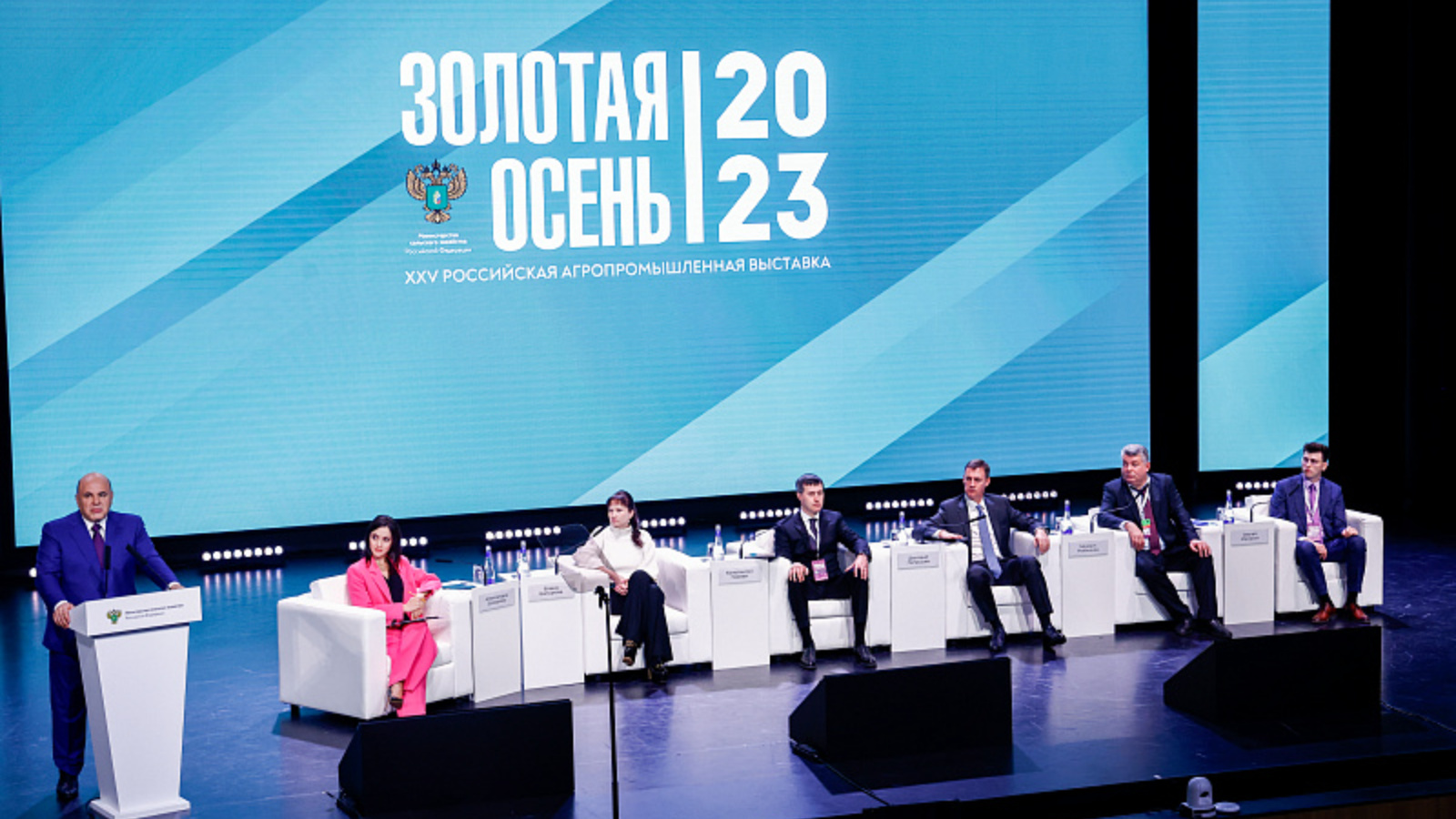Issues of development of agricultural education were discussed at the plenary session of the exhibition “Golden Autumn - 2023”

As part of the anniversary 25th Russian agro-industrial exhibition “Golden Autumn - 2023”, a plenary session was held on the topic “Investing in the future: a modern view of agricultural education.” The event was attended by the Chairman of the Government of the Russian Federation Mikhail Mishustin, the Minister of Agriculture Dmitry Patrushev, heads of constituent entities, representatives of federal authorities, science, education and business. The meeting was also attended by Deputy Prime Minister of the Republic of Tatarstan - Minister of Agriculture and Food of the Republic of Tatarstan Marat Zyabbarov.
Opening the meeting, Mikhail Mishustin noted that the basic indicators of the Food Security Doctrine have been achieved and some of them have been exceeded - for grain, sugar, vegetable oil, meat, fish.
According to the Prime Minister, the Government continues to closely monitor the situation in the agricultural industry and is ready to quickly respond to industry requests. Just as it was done in connection with the change in the rate by the Bank of Russia. “The federal budget has allocated 158 billion rubles for short-term and investment loans at a rate of up to 5% this year. But, naturally, it became clear that more significant measures were needed. With the support of the President, we allocated additional funds in September - about 55 billion rubles, which will allow us to fulfill previously accepted obligations and subsidize upcoming seasonal field work,” said Mikhail Mishustin.
The Prime Minister emphasized that the industry is now on the rise. And of course, the quality of life in rural areas is changing for the better. “Last year, over 420 billion rubles were allocated for these purposes. Funding remains at approximately the same level this year. Corresponding allocations are also provided for in the draft three-year federal budget, which was submitted to the State Duma,” said Mikhail Mishustin.
During the plenary session, Dmitry Patrushev spoke about the preliminary results of the industry in 2023. He emphasized that the Russian agro-industrial complex today is a self-sufficient sector of the economy that is able to operate effectively regardless of external restrictions. Over the past year and a half, the agro-industrial complex has adapted to changing conditions. Logistics and foreign economic activity, the system of state support and mechanisms of customs and tariff regulation have been restructured. Work has been intensified to increase import independence in such systemically important areas as selection and seed production, biotechnology, production of various food ingredients, and packaging.
According to the head of the Ministry of Agriculture, in 2023 the industry will show growth in many segments. In particular, the production of livestock and poultry, milk, aquaculture products, and most types of food products will increase. Volumes of all major crops will be above five-year averages. In particular, the grain harvest will be one of the best and, if favorable weather continues, can reach 135 million tons in net weight, of which about 90 million tons are wheat.
At the same time, world prices and expectations of a high harvest are putting pressure on domestic grain prices. In this regard, the Ministry of Agriculture plans to launch interventions in the amount of up to 2 million tons at the end of 2023. Also this year it is planned to allocate an additional 10 billion rubles to support grain producers. Another 10 billion rubles will be provided for the same purposes in the first half of 2024. In addition, the Minister recalled that the Government has allocated additional funds for preferential lending in the agricultural sector. This made it possible, among other things, to increase the limit of subsidies for “short-term” loans, which are most in demand during seasonal field work, by 30%. Issuance has been resumed this week.
Speaking about the development of exports of agricultural products, Dmitry Patrushev emphasized that despite foreign trade restrictions, in 2023 the country is quite dynamically increasing food supplies to foreign partners. The volume is already significantly ahead of the same period last year and amounts to almost $33 billion. It is expected that by the end of the year, exports will exceed $45 billion, which will become a record for our country and will allow us to maintain our status as a net exporter.